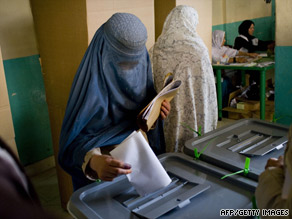David L. Chaplin II
Impunity Watch, Asia
BEIJING, China – “President Obama, as the father of two girls yourself, please ask President Hu Jintao of China to tell this daughter where her father is…If the Chinese government has murdered my father, I beg President Obama to ask President Hu to let us bury him.” These are the desperate words from the daughter of China’s leading Human Rights attorney, whose profession has become another example of how China silences critics.

As the Wall Street Journal reports, Mr. Gao hasn’t had the privilege of courts and jails but has simply disappeared, without any official word on the circumstances of what his family and most observers believe to be his detention by the government.
In 2009, in the article “Dark Night, Dark Hood and Kidnapping by Dark Mafia,” which was published on the Internet, Gao Zhisheng described the atrocious torture inflicted on him by police during his imprisonment in 2007, including cruel beatings, shocking his gentiles with electric batons, damaging his eyes by blowing cigarette smoke into them for hours, inserting toothpicks into his penis, etc. Gao’s exposé shocked the international community. (Epoch Times)
The teenage daughter, Grace Geng, one of China’s most respected human rights advocates has pleaded to President Barack Obama for help finding answers to questions few can answer.
Grace Geng, her mother and brother finally fled China with her mother last year, and are now living in the United States.
In an open letter to the president, saying her father had been tortured and she too had been beaten by police and barred from going to school, 17 year-old Grace, wrote a letter published by the Wall Street Journal with the words: “Six months ago last week the Chinese government kidnapped my father. He was abducted for exercising his right to freedom of speech.”
In what has been five years of tracked oppression by the hands of the world’s leading economy, Gao Zhisheng, since: 2005: authorities have closed down Gao Zhisheng’s law practice; Dec 2006: Convicted of subversion and sentenced to house arrest; Sept 2007: Says he was tortured during a period of detention; Jan 2009: Disappears; last seen accompanied by security officials; Mar 2010: Reappeared for a month before disappearing again.
Accompanied by Beijing lawyers Teng Biao and Li Heping, Gao Zhisheng’s eldest brother Gao Zhiyi recently reported the case to Xiaoguan Police Station in Beijing’s Chaoyang District, but police refused to register the case or take a written statement. (BBC)
In an interview with Sound of Hope Radio Network, Li Heping said that communist authorities often illegally torture petitioners, political dissidents, and rights defenders. Citizens are arrested for seeking redress of grievances. Lawyers who defend them are also implicated and persecuted.
Mr. Gao’s circumstance alongside Liu Xiaobo’s, the jailed academic awarded the Nobel Peace Prize months ago, are patterns of the Chinese Communist Party’s increasing persecution of human rights defenders in China.
Li Heping worries that the Chinese people cannot do anything about the communist state’s illegal practices. “Another way to put it is that this is the regime’s scoundrel way. What can you do about it?”
For more information, please see:
Wall Street Journal – Again, Where Is Gao Zhisheng? – 28 October 2010
BBC – Daughter pleads for missing China lawyer Gao Zhisheng – 28 October 2010
The Epoch Times – Beijing Police Refuse to Register Gao Zhisheng’s Missing Case – 24 October 2010


